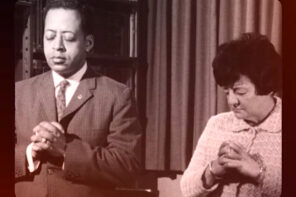On Friday, Scientific American published two blog posts, point and counterpoint, on the question of science and human origins. Both players get it right, and both get it wrong.
First to bat, science writer Clay Farris Naff stakes out new territory in the science-religion rumpus ring: supernatural-free intentional creation. Naff, a secular humanist, proposes a scenario in which our universe was created by a mega-species with the intention of perpetuating life. This mega-species was (is?) trapped in its own universe which, like our own, is subject to the inexorable rise of entropy. Seeing that their days are numbered, this species creates our universe and us in it, because they know life is good and should be preserved.
Next up, New Atheist Stephanie Zvan. A science-fiction writer by trade, she knows a story when she sees one:
“[Naff’s proposal] is fine for a science fiction story, but [he] isn’t asking us simply to be entertained. For making a compelling case that an intelligent creator may be more than fiction? Well, like Russell’s teapot, there just isn’t much here to go chasing after. It’s just a story.”
For his part, Naff works very hard in his essay to convince the reader that his proposal is falsifiable and that he is not religious. But the gentleman doth protest too much. The falsifiability he has in mind—that we may one day demonstrate the impossibility of creating a new universe—is strictly of the in-principle, hypothetical variety and seems unlikely to gain any real traction.
And although it replaces God with a thoroughly material super-species, Naff’s idea is essentially religious. Beings who designed the universe for the purpose of life? A story motivated by his hope that “life is a gift, given in trust”? Do secular humanists get to talk like this? If so, why? If not, what is Naff doing?
I do call Naff’s proposal a story, just as Zvan does. But here is where I differ: What is a story? Is it, in Zvan’s words, mere “entertainment”? Just fantasy? Or is there more going on with stories? As a fiction writer, surely Zvan knows that, at their best, stories are not just about amusement. The best ones may actually be true somehow.
Is Naff’s truncated religious story true in the way he suggests—literally, scientifically? Maybe so, maybe not.
Is it true in the way he wants it not to be—poetically, metaphorically? Maybe so, maybe not.
As a Christian, I think so. But Zvan differs: “We are better off treating [non-scientific] stories as fantasies until they are supported by observation.”
OK, how’s this for an observation: I observe a universe that seems largely indifferent to us, yet, in the words of physicist Freeman Dyson, “seemed to know we were coming”; a universe which includes at least one species that cannot shake the idea of purpose; a universe that contains creatures who, despite their best efforts, are utterly bent on the idea that “life is a gift, given in trust.”




